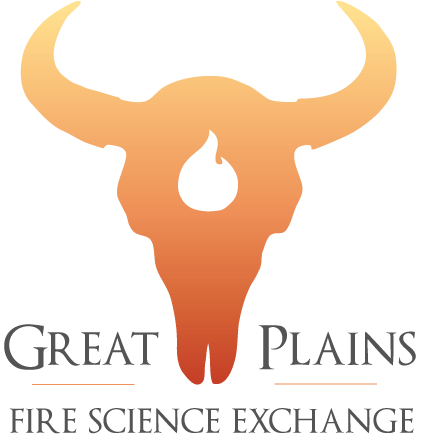Videos
This handout was published in 2005, but it contains good information. Topics covered include history of fire use in Texas, fire ecology in different ecoregions, use of fire in wildlife management, several case studies, roles of fire management agencies, and increasing stakeholder involvement.
The recent increase of wildfires in the southern Great Plains has illustrated a need for development and application of fuels (vegetation) management techniques in the region. Fuels management is crucial to fire suppression and fire fighter safety, as the amount of fuel directly influences flame lengths. Flame lengths, in turn, are among the primary factors used to describe fire intensity, which has a direct impact on the ability to suppress wildfires.
The increasing frequency and intensity of wildland and wildland-urban interface (WUI) fires have become a significant concern in many parts of the United States and around the world. To address and manage this WUI fire risk, local fire departments around the country have begun to acquire the appropriate equipment and offer more training in wildfire response and suppression. There is also growing recognition of the importance of wildfire mitigation and public outreach about community risk reduction. Using survey and interview data from 46 senior officers from local fire departments around the U.S., this report describes how some local fire departments are addressing the wildfire peril in terms equipment, training, fitness, response strategies and tactics, public communication, education, and mitigation activities. The successes and challenges these departments have experienced also show how departments face and overcome barriers to being better prepared and ready to control and mitigate a wildfire incident in their communities.
We are excited to present an annotated bibliography of patch burn grazing citations. This document is the result of refining Stephen Winter’s periodic updated bibliographies on patch burn grazing. It includes papers representing original research, review and synthesis papers, theses, and a dissertation.
A citation tracker is available online that will allow you to help us update this document in the future. You can add any citations that we are missing into the citation tracker and we hope to periodically update the annotated bibliography. The citation tracker can be reached through the link in the annotated bibliography PDF, and a link on the GP Fire Science Exchange website will soon be available as well.
We are also working to make FRAMES (an online fire database; linked in the annotated bibliography PDF) work better for you. FRAMES is updating keywords and adding new references to match this bibliography as well as a pyric herbivory section that was drafted but not included in the attached document. You can now click on fire and grazing themed searches right from the GP Fire Science Website!
2014-16
Smoke Signals is a quarterly newsletter published by the Bureau of Indian Affairs, Branch of Wildland Fire Management at the National Interagency Fire Center. The newsletter, written by authors from across Indian Country, highlights activities and accomplishments taking place in the forestry and wildland fire management programs.
https://www.bia.gov/bia/ots/dfwfm/bwfm/forestry-fire-newsletters
The link below will take you to a recent newsletter describing fire weather products for Oklahoma. Now is a great time to get familiar with these tools to prepare yourself for upcoming burns.
Using fire during the growing season is a promising new way to manage sericea lespedea in tallgrass prairies. Growing season burns offer advantages beyond sericea control, including easier to contain fires and a second chance to burn acres omitted during the dormant season.
2018-01
A sandbox can be used as a teaching tool for prescribed burning education. Often learning is best achieved when participants can visually work out a procedure rather than simply discussing it.
The course is divided into seven educational sections with a wrap-up section at the end. Each section includes reading materials, activities, and videos. You can complete the sections in any order. Upon successful completion of all sections and passing the comprehensive quiz at the end, you will receive a certificate for the Prescribed Rangeland Burning course. You will also be ready to attend a hands-on burning workshop.
Basic Prescribed Fire Training is an online course for landowners, land managers, state/federal agency personnel. In this course participants will develop a basic knowledge of the use, application and effects of prescribed fire.
The Arkansas River Valley Wildland Fire Academy operates at Arkansas Tech University. With an average attendance of over 300 students, the academy strives to meet the diverse needs of all firefighters by providing a well-rounded, safe and welcoming learning environment. Our mission is to enhance the abilities and skills of each firefighter in attendance.
This year the academy is offering courses for wildland firefighters from all wildland fire agencies ranging from 4 to 40 hours in length. Each course is taught by instructors from state and federal agencies, allowing the academy to provide unique experiences as well as a wealth of professional knowledge and abilities to each course.
Learn more about the Arkansas River Valley Wildland Fire Academy >

